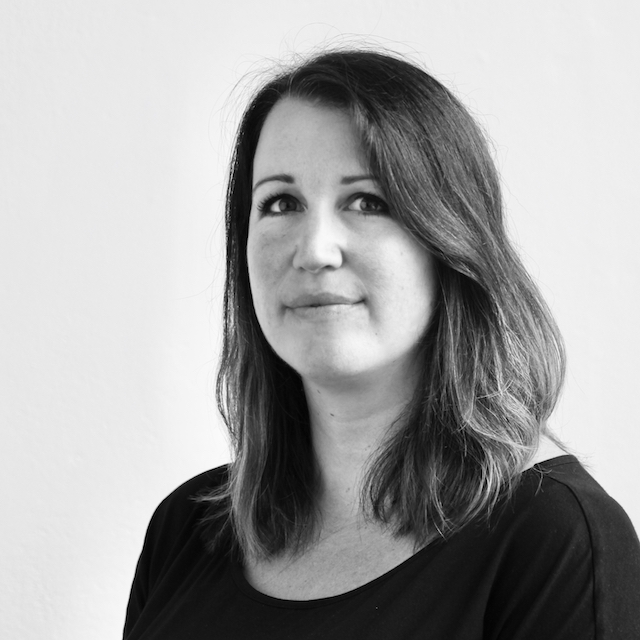
By Rae Morgan, Principal Consultant at Wilson Fletcher
The flood of reports that pop up around this time each year outline ‘promise’ on the one hand and ‘still a way to go’ on the other. The same statistics brandished by companies as proof of progress are equally proof of the need to do more for many of the individuals covered by those figures.
It is useful as a prompt for public debate, certainly: another chance to ask ourselves ‘what’s a workable solution, and for whom?’ The solutions do exist (ask any woman), but in a world where the male experience is still seen as the default, it can be frustrating to still be making a case for them. To be ‘hoping’ for change where that change is branded as ‘not good for business’.
The pandemic’s been dreadful, of this there is no doubt. Additionally, for women, it has set gender equality back by 25 years, based on stay-at-home care and housekeeping falling disproportionately to them. I’ve heard the arguments for the view that the person in the household that earns the least should be the one to pick up that slack. When the gender pay gap, time out of work for childbirth, and a society that continues to recognise the efforts of men above that of their equally competent female counterparts is taken into account, you can see how systemically unfair that is.
That same report, from the UN, reveals that women put in a full day more per week of childcare than men: unpaid care work that doesn’t play well with any other job(s). Attempting even the basics of homeschooling whilst remaining productive at work leaves us with The Shivers at best and at worst with PTSD. Let’s not do that again.
But prior to the pandemic it wasn’t such a different picture, not really. According to the report ‘Improving Women’s Progression in the Workplace: Evidence Briefing on Barriers and Facilitators’ devised by the Government Equalities Office and The Global Institute for Women’s Leadership, ‘Women’s progression in the workplace continues to be held back by tensions between current ways of organising work and caring responsibilities.’ And whilst women with caring responsibilities make up a large proportion of the people facing these challenges, it’s inadvertently narrowing to only think about it in only those terms. Perhaps one of the few things to be gifted by the pandemic is the opportunity to reset — start asking the right questions to stop ourselves sliding back into old patterns that didn’t really work for most people.
At Wilson Fletcher, a consultancy dominated by women (our leadership team is 2:1 women:men, and the picture is similar across the business), we have long extolled the business case for going to a 4-day week. We’ve found it super-charges the work we do in the office, not least because we have more energy for it, but also because we don’t ever languish in the sprawling days: we’re far more fired up to deliver impactful work to tight deadlines and are more equipped to do so. We’ve made commitments and choices to support this — there’s a social contract of sorts. As individuals we get a day back per week to recharge and use for whatever we want, in return the business must be thriving and doing better work than it ever did before. Seems unbelievable, but you only have to ask our recent clients if they felt underserved to appreciate the reality of it. It can be challenging to compute — even more so to adopt — but, having done this for three years already we’re pleased to say that for Wilson Fletcher it’s been a game changer. It’s likewise been great to see the model making its way into more workplaces, too.
It’s also no surprise that this helps those of us navigate lives with young families — that extra day to get ahead — but WF adopted flexible working hours long ago and a thoughtful approach to working locations (more on that in a moment). It’s a package of flexibility that focuses on the best way to work for each person whilst never compromising on the service to clients — and being considerate of the needs of our colleagues. Because I can be, and am, responsible to my family and my working team without feeling like either has to suffer.
We work a normal business day (no extended hours here thank you very much) but our core hours are from 10am until 4pm. Start early or finish later, whatever suits you that day. For me, it means I can drop my kids off at the start of the school day for the first time in years — without a herculean effort to bundle everyone out the door to breakfast club with all the stuff they need by 7.30am. For others it means an exercise class to start the day, a blustery dog walk or just a much needed lie in.
Of course the pandemic saw many of us work remotely; I enjoyed the small glimpses into my colleagues’ domestic chaos (not just me, then); and even witnessed changed Zoom backgrounds as several of them moved out of the capital. But as life returned to normal, our worries that we’d no longer find satisfaction in a Pret lunch; that we’d find ‘getting back into the routine’ difficult; and that sharing enclosed carriages with strangers on our commute would make us vulnerable to catching and spreading COVID… it had us all fairly beat, three-day weekend or not.
So we tried a hybrid model, where we’d all come into the office on Tuesdays and Thursdays, keeping that face-to-face cadence in the diary. It wasn’t perfect. We found it hard to plan our work around these days: if you have two solid weeks of desk research, then getting to the office, whilst a nice change of scenery and lovely to catch up with colleagues, wasn’t conducive to that particular mode of working. Some of us were relieved to be told the return to the office was possible, keeping the work/life divide clear. Others worried it would upend the smoother running of life that hadn’t had to sacrifice 3 hours commuting a day to the transport gods. These weren’t just teething pains. We tried it for a few months and, though it was great to spend more time in each other’s company, it didn’t strike an optimal balance for a team at differing life stages, and as far apart geographically as Edinburgh and Folkestone, including some who are just a few minutes’ walk from the office.
Crucially with these things, as leaders it’s important to maintain flexibility and an open channel of communication with your teams. While we have a very open culture at WF, this still proved a difficult subject to address at times, but we all recognise the collective positivity since we’ve adopted a model that better benefits everyone. And the closeness that being heard, and solutions-finding together, enables in a team. It’s finding the difference between ‘that would never work because…’ and ‘how can we make this work that benefits both our staff and the business?’
Not hybrid, not remote, but optimal. A discrete difference. If you want to come into the office you can. Working from home doesn’t make you a pariah. We always spend a full day together quarterly and on the last Thursday of the month (when we all also set our home burglar alarms). Outside of that there’s no obligation to come in except when we need to be together to deliver the best work for our clients. Workshops and time together is crucial to what we do, but we can approach it on a case-by-case basis — we plan for this and it works. We don’t resent being away from home comforts, nor hold a sense of confusion towards an otherwise seemingly gratuitous rule: if anything, it makes coming together (which we still end up doing often) all the better. Does this work? For us, yes, so far. More valuable than any operating model though, is meaningful conversation. We all know that, if we need to make future changes to this model, we’re in the best position to do so.
Balancing everyone’s needs isn’t easy. All of us at the coalface need to work hard to make a flexible, equal workplace function well. It’s not just about supporting those of us with kids. We also need to build confidence and skills in young women early on in their careers, because ensuring equal opportunities to progress from day one is as important as supporting differing choices in personal circumstances later on. By giving everyone the agency to fulfil their jobs in a way that works for them, you’ll see that it also works for you.
 About the author
About the authorRae is Prinipal Consultant at business innovation consultancy Wilson Fletcher, where — with her 15 years’ experience in technology and digital service programmes — she helps established companies develop the systems and strategies that will ensure their ongoing success. Follow Wilson Fletcher on LinkedIn and sign up to their monthly newsletter, The Wrap to get insights, actionable recommendations and news that will help strengthen your market position in tomorrow’s landscape.
